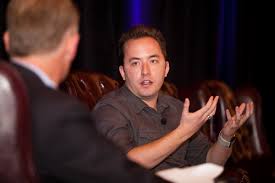A while back, I had a client with a compelling product idea and ambitions to secure venture capital to bring it to market. He had the passion, the prototype, and the pitch. But he lacked something more fundamental—credibility as a venture-backable CEO.
To help him get a clearer picture of what it takes, I invited Patrick Bultema to one of our meetings. Patrick, then the Director of Innovation at Colorado College, had raised venture capital multiple times across different ventures. If anyone could speak candidly about what venture capitalists look for in a CEO, it was Patrick.
After listening to my client’s story, Patrick didn’t pull any punches. He looked him in the eye and said, “You are not a venture capital CEO.” That moment hit hard. But what followed was even more profound. My client, to his credit, took the feedback seriously and asked, “How do I become a venture capital CEO?”
Patrick’s answer was golden: “Become the second in command to a venture-backed CEO. That’s how you learn the ropes.”
That exchange has stuck with me for years. It highlights a concept that doesn’t get enough airtime: consciousness is contagious. You become who you spend time with. If you want to think and act like a venture-capital-funded founder, you need to immerse yourself in that environment. Proximity isn’t just power—it’s transformation.
Related Post: Are Your Friends Preventing Your Success?
Leveraging Beliefs, Not Just Money
In the business world, we often talk about financial leverage—using other people’s money to grow faster. But a less discussed, yet equally potent form of leverage, is philosophical leverage. That is, leveraging the mindset and belief systems of people further along the path than you.
Our beliefs shape our behaviors, and behaviors shape outcomes. When you surround yourself with people who already operate at the level you aspire to, their habits, language, and frameworks begin to seep into your own thinking. It’s not just about mentorship—it’s about osmosis.
In fact, psychologist Albert Bandura’s social learning theory asserts that people learn not only through their own experiences but by observing others. Want to be a high-performing entrepreneur? Spend more time with high-performing entrepreneurs. Want to speak the language of venture capital? Then don’t just read pitch decks—spend time with those who’ve pitched, raised, and scaled.
Your Network Is a Preview of Your Future
One of the most actionable steps you can take today to grow into the kind of entrepreneur who can attract capital is to audit your network. Ask yourself:
- Who am I spending time with regularly?
- Do they challenge my assumptions?
- Are they operating at a higher level of business acumen than I am?
- Do they have experience in areas where I want to grow?
If not, it may be time to seek out new connections. This doesn’t mean abandoning old friends. It means making room for mentors, advisors, and peers who can elevate your game.
You might find these connections through accelerators, industry meetups, online mastermind groups, or platforms like Y Combinator’s Startup School or Techstars. Even shadowing a venture-backed founder or volunteering your time on a startup team can be a great entry point.
Let Consciousness Work in Your Favor
Whether you’re seeking funding, trying to become a better leader, or stepping into any new identity, the fastest way to grow is to get close to someone who’s already there. Patrick Bultema didn’t offer my client a book or a course—he offered him a path. A path that required humility, curiosity, and most importantly, proximity.
What’s your plan to leverage your personal development by connecting with people you aspire to be more like?












